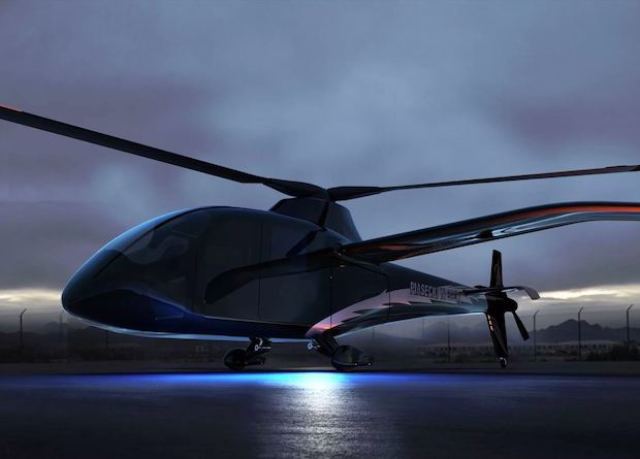American companies HyPoint and Piasecki Aircraft are going to create the first hydrogen helicopter, as well as develop and certify a hydrogen fuel cell propulsion system for electric vertical takeoff and landing aircraft. It will give an energy density four times higher than existing lithium-ion batteries.
The main alternative to a fully electric propulsion system is hydrogen. In it, an electric motor is also responsible for the movement, but it is powered by a fuel cell that creates a current by connecting oxygen and hydrogen. Hydrogen can give a much higher energy density than many modern batteries. Several companies are currently engaged in the development of hydrogen aircraft. For example, the American startup Alaka'i Technologies is creating a hydrogen air taxi Skai, and the German companies H2Fly and Deutsche Aircraft are creating a 40-seat hydrogen liner .
HyPoint in March announced the development of a hydrogen fuel cell with a peak power of two kilowatts per kilogram. This is three times higher than the average of mass-produced analogues. HyPoint says that the fuel cell uses a compressed air supply system that solves two tasks simultaneously-cooling the fuel cell and injecting hydrogen into the working area. Its energy density is 1.5 kilowatts per hour per kilogram.
In August, HyPoint teamed up with Piasecki Aircraft to develop and certify a hydrogen fuel cell propulsion system for vertical takeoff and landing vehicles. The first five units with a capacity of 650 kilowatts will be installed on the PA-890 helicopter, which will become the first manned hydrogen helicopter in the world. The propulsion system will give an energy density four times higher than lithium-ion batteries, and twice as high as existing installations on hydrogen fuel cells. Piasecki Aircraft and HyPoint are going to start its certification tests in 2024.
Hydrogen propulsion systems can be used not only on aircraft. Earlier we wrote about a Mercedes-Benz truck running on hydrogen fuel cells. Its production version will have a power reserve of a thousand kilometers.
Vasilisa Chernyavtseva

